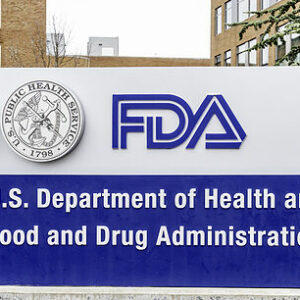In an ever-changing consumer economy, one enduring timeworn constant is people today remain susceptible to misleading product claims. Estimates note the average person sees between 4,000 to 10,000 advertisements daily, nearly double the number that lobbied our eyeballs as recently as 2007. With our attention span stretched to the limit, the opportunity is booming for ethically challenged businesses to cajole an unsuspecting public into spending their money on items of dubious merit.
The responsibility for policing this unsavory reality falls primarily on the Food and Drug Administration, the federal agency vested with the authority to monitor the consumer marketplace and oversee that all information given to the public is factually and scientifically accurate. Its jurisdiction further extends to enforcement, which keeps hundreds of staff attorneys bustling — it is hoped – to hold companies engaging in deceptive practices accountable.
With an annual budget of $8.4 billion, the FDA has enormous resources to enforce the rules regarding the sale and distribution of health and beauty products. Yet, once again we find it choosing to look the other way on a blatant consumer sham.
The advertising campaign of pharmaceutical agent Revance Therapeutics is misleading consumers regarding the efficacy of its injectable skin care product neuromodulator DAXXIFY. While its marketing declares a 50 percent success rate, FDA testing revealed that only one-third (33 percent) of patients had the claimed benefits to their skin after injection. Tacking an extra 17 points to the FDA’s efficacy finding inflates Revance’s effectiveness by a whopping 51 percent, rendering its press release and marketing as blatant misstatements of the FDA’s objective findings.
Sadly, this is far from an isolated event, and one has to wonder if the FDA is on an extended smoking break, given its absence from numerous issues under its charge. It may be preoccupied with the widespread calls of incompetence concerning its sub-standard actions to protect the U.S. food supply, but surely that does not inspire confidence. The FDA is AWOL on a growing list of issues, such as closing a loophole to prevent China from marketing disposable vapes to minors, addressing widespread fraud in the cannabis industry, and being infamously slow to react to findings of high levels of toxins in baby food.
It is no shock to find that a bloated federal bureaucracy is highly inefficient, that it can drag its feet on approving lifesaving drugs, or have misguided priorities, such as a ludicrous crackdown on dairy farms or a nanny-state maneuver to stop cigar makers from giving samples to military personnel. But more than any other agency in our system of government, it is the FDA that is directly responsible for protecting public health.
If the FDA cannot muster the energy to protect the public from a product such as DAXXIFY misrepresenting an FDA study, when, where and how can it ever be counted on? Were Revance some flimflam artist in a bowler hat selling a magical elixir from town to town, we could give the FDA a pass for not having their eyes everywhere. But here, there is no excuse. Revance is a rapidly growing company whose recently released first-quarter revenue exceeded investor expectations thanks to sales of DAXXIFY. This is a handsome reward for disregarding consumer safety with phony data.
While the FDA has the unique and lifesaving duty to regulate and approve drugs and therapeutics, its safety measures mean nothing when labels are not enforced. The market only works if consumers have access to the ingredients, efficacy and packaging of the products they use or ingest, and by turning a blind eye to rules regarding truth and transparency, regulators are sending the wrong signal to unscrupulous actors in the marketplace. Meanwhile, honest companies who don’t exaggerate or falsify claims suffer an unfair playing field.
No matter that it has come up short in the past, there is always time for the FDA to reform, to enact efficiencies and respond swiftly to public health priorities. It has the budget and staff to enforce the law, keep the public safe and put unscrupulous actors on notice. Public trust and confidence in the FDA would rebound nicely if it turned a new leaf. It could start by responding more quickly to issues of food security, taking action to keep illegal vapes out of the hands of children, ensuring injectable products such as DAXXIFY were truthful in their advertising, and stop nagging our soldiers about smoking a cigar. Not having to worry whether the FDA was actually doing its job would also do wonders for public health.

